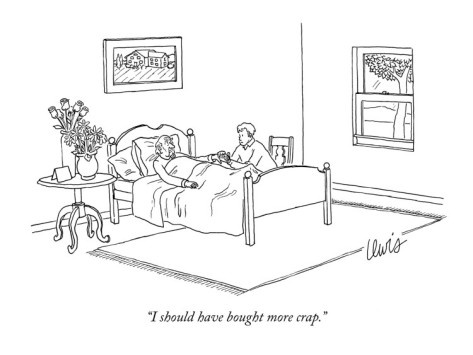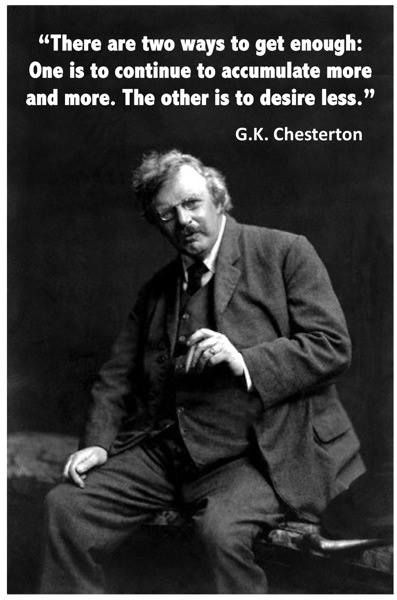Last Updated on March 3, 2024
A few year ago, my life was cluttered. I misplaced things, I was unorganized, I practiced unnecessary consumerism, and I didn’t keep track of my budget. In general, I was living irresponsibly. Over the last few years things have changed dramatically. Life doesn’t simply happen to me anymore, I’m in full control of it.
Today I would like to talk to you about minimalism and why you should embrace it. Being a minimalist means to appreciate simplicity. It means that you would much rather live simply and use only what you need. When you own fewer possessions you have less to clean, less debt, more money, more time, and more energy. But minimalism isn’t simply getting rid of stuff you no longer use or want, it’s also about eliminating stress and unneeded complexity from you life.
If you wish to understand and learn more about minimalism, check out these incredible blogs:
Becoming a minimalist isn’t easy. You have to be willing to have an open mind and let things go. Before you scroll down, I just want to let you know that every person has their own meaning for minimalism. You might now agree with my point of view, and that’s perfectly fine. I just hope you have an open mind.
Common Misconceptions About Minimalists

When people hear you’re a minimalist, they automatically formulate assumptions about your life. I would like take a moment to address these ignorant speculations.
- Minimalists are cheap: Not really, minimalists tend to be more thoughtful about how they spend their money. They’re frugal, not cheap.
- Minimalists are selfish: Not true. Minimalists tend to have their life in order, meaning that they have more free time to care about others.
- Minimalists compete with each other: Minimalists who only have 100, 50, 30, or 20 things to their names tend to get attention from the press. Because of this, outsiders think it’s a king of the mountain content (whoever can live with the least amount of items wins). This is nonsense. You define what minimalism means to you. If you’re proud of yourself for living with less that 50 items, then more power to you.
- Minimalists live alone and don’t have kids: Not true. Minimalists do have partners and children.
- Minimalism is extreme: People think that living with only the things you truly need to survive and be happy with is extreme. This one is pretty funny. I guess they didn’t pay attention in history class.
- Minimalists don’t drive cars: Sure they do. But minimalists who live in cities tend to use public transportation or bicycles.
- Minimalism is a religion: I guess that statement holds some merit. The English word “religion” comes from the Latin word “religo,” meaning to “bind up.” Religion binds people up in rules and regulations or in ritualistic patterns of devotion. So in that case, I guess it’s true. However, that means: Science is a religion, math is a religion, technology is a religion, watching your favorite TV show becomes a religion, etc.
Now that we got that out the way, let’s get started.
Money

Evaluate all of your weekly, monthly, quarterly, and yearly expenses. Where are you spending your money? Are you currently in debt? Do you find yourself making impulse purchases?
Getting control of your finances can reduce tons of stress. Figuring out where your money goes each month is very important. You should sit down, take a look at every single bill, and figure out how you can reduce it.
- If you have online subscriptions, figure out if they’re really worth paying for. All of those $5, $7, and $10 dollar subscriptions add up.
- How much do you currently pay for your car, health, or house insurance? Shop around and see if you can find better alternatives.
- How much money do you pay for cable or satellite TV? Can you reduce it or maybe even get rid of it?
- What about phones? Do you have a home phone? If so, get rid of it and get a cell phone instead. Do you have a cell phone? Try to downgrade your mobile phone to a cheaper package. You can also buy a pay as you go phone.
- How frequently do you purchase clothes? Are you doing it to impress your friends or other people? Do you really need all those socks, t-shirts, hoodies, jackets, pants, etc.? What was the last time you wore that dress or suit? Try to figure out what you do and don’t wear. Once you’ve figure out what you don’t need, sell it or donate it.
- How much money a month do you spend at the grocery store? Can you possibly cut costs by going for lesser known brands? Can you go to your local farmers market and buy fresh vegetables and fruits there? What about buying products in bulk from wholesale stores like BJ’s, Costco, or Sam’s Club?
- What about your utilities? Do you always leave your lights or TV on, even if you’re not in the room? Do you have a dishwasher? Why not wash your dishes by hand as you go? How frequently do you wash your clothes? Ask these sort of questions and see if there is any way to reduce your usage/dependence.
- Do you constantly find yourself buying, or “upgrading” your gadgets? I’m pretty sure the phone you got a few months ago works fairly well. You don’t need to rush to the Apple Store and buy the latest iPhone. Nobody cares what smartphone you have. If you’re worried that your friends will make fun of you for not having the latest toy gadget, then you should probably find new friends.
- Are you paying all of your bills by mail? Why not set up automatic payments, or simply pay your bills online?
Looking at all of your expenses will give you a clear picture of what you truly make each month. This information will allow you to create a budget.
Personal Life

Evaluate who you spend most of your time with. What friends or family members do you see on a regular basis? Think about how you feel when you’re with them. Do they drain your energy or do they make your life better? Are they always negative or discouraging? If so, let them go. Spend less time with them and eventually they will fade away.
I know that sounds pretty harsh, but if somebody is draining you and not providing value to your life, then they’re not worth holding on to. The same concept applies to relationships. If you’re with somebody who is constantly draining you, sit down with them and let them know how you feel.
Talk with them. Share your emotions and thoughts about the current situation. Ask them to be more supportive or give you more space. Discuss how you can make your life together more meaning and fulfilling. If the drama continues tell them that this relationship is no longer right for you, and let them go.
You’re better off being happy alone rather than being miserable with someone else.
Declutter Your Home, Apartment, Shelter, etc.
![AZ6PdGr[1]](http://inspirationfeeed.files.wordpress.com/2014/03/az6pdgr1.jpg)
There are hundreds of techniques to declutter your home. Here’s my advice:
Step 1: Pick a room in your house.
Step 2: Go through every single thing in that room. EVERYTHING.
Step 3: Ask yourself, “What was the last time I used this? Will I ever use it again? How much will it cost to replace it at a later date?”
Step 4: Get rid of it. It’s that easy. Either throw it in the trash, sell it on Craigslist, or donate it.
Step 4.5: If you’re seriously unsure whether you will need that item at a later date, put it in a box labeled “maybe.” Return to it in 3 or 6 months and see if you still need it.
Step 5: Pick another room and repeat the process.
Your unnecessary stuff is only taking up space and clouding your mind. YOU DON”T NEED IT.
Your Weekly Schedule

Look back on your week and see what you did. Did you waste time? Did you spend too much time watching TV. Did you spend too much time playing Call of Duty?
Here’s the thing. I think Bertand Russell was right when he said, “Time you enjoy wasting is not wasted time.” So if you truly enjoy sitting back and binge watching movies on Netflix, then there is nothing wrong with that. Just don’t complain or make up excuses later on in life as to why your life sucks or why you’re unsuccessful.
If you truly want to get a grip on things and accomplish your goals, make room for them. If you want to learn a language, set 30 minutes aside each day. If you want to work on your bucket list, do so on the weekend. If you want to write a book, start writing a page a day (In a year you’ll have 365 pages written). If you want to learn a new subject, take free online courses. I hope you see what I’m getting at.
You must figure out which activities are a waste of time. Remove them and make room for things or people you truly enjoy.

